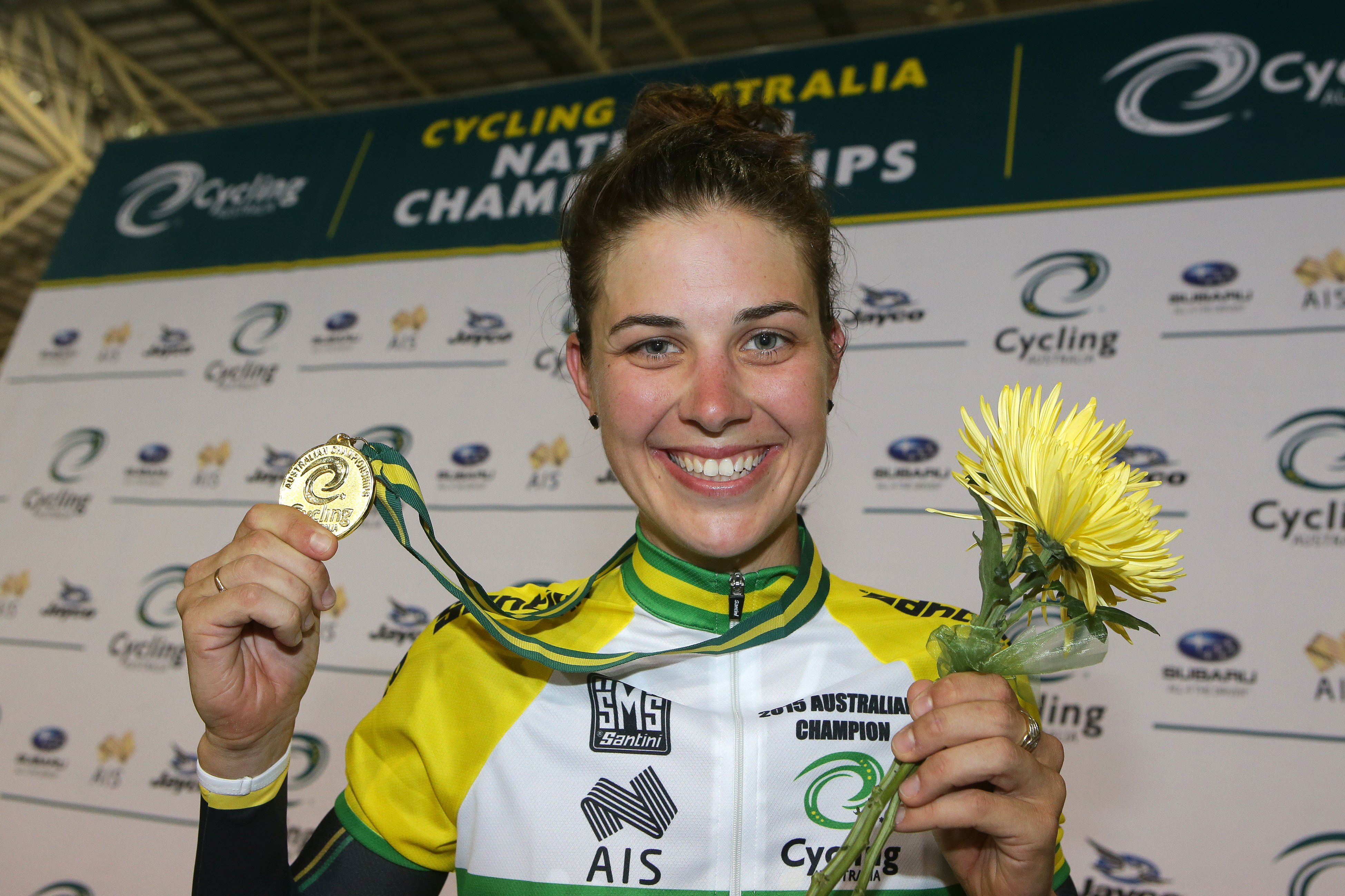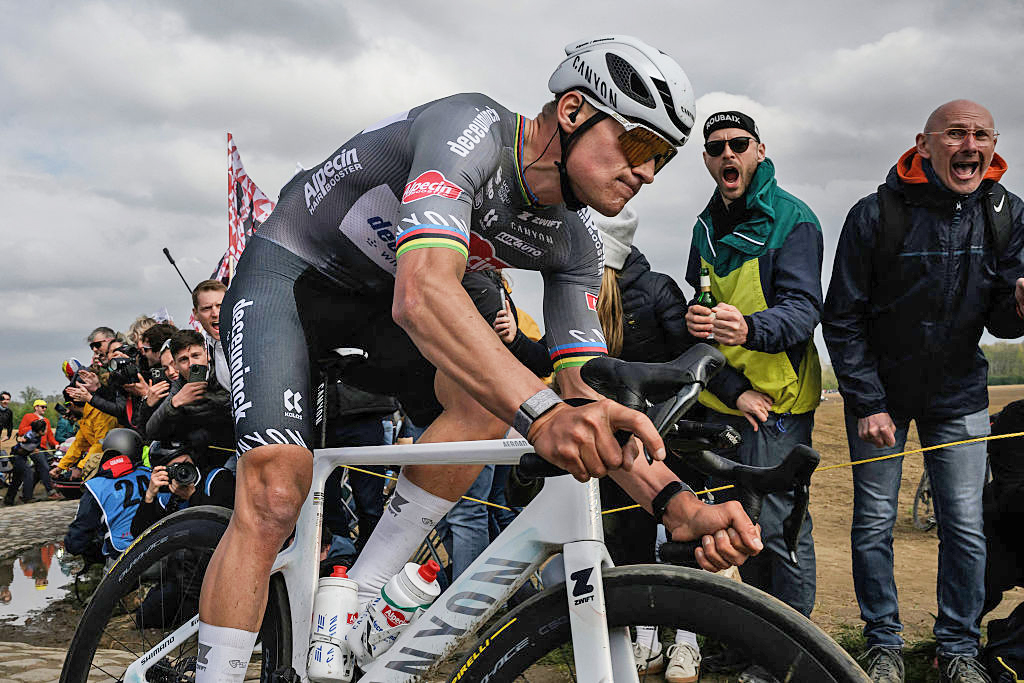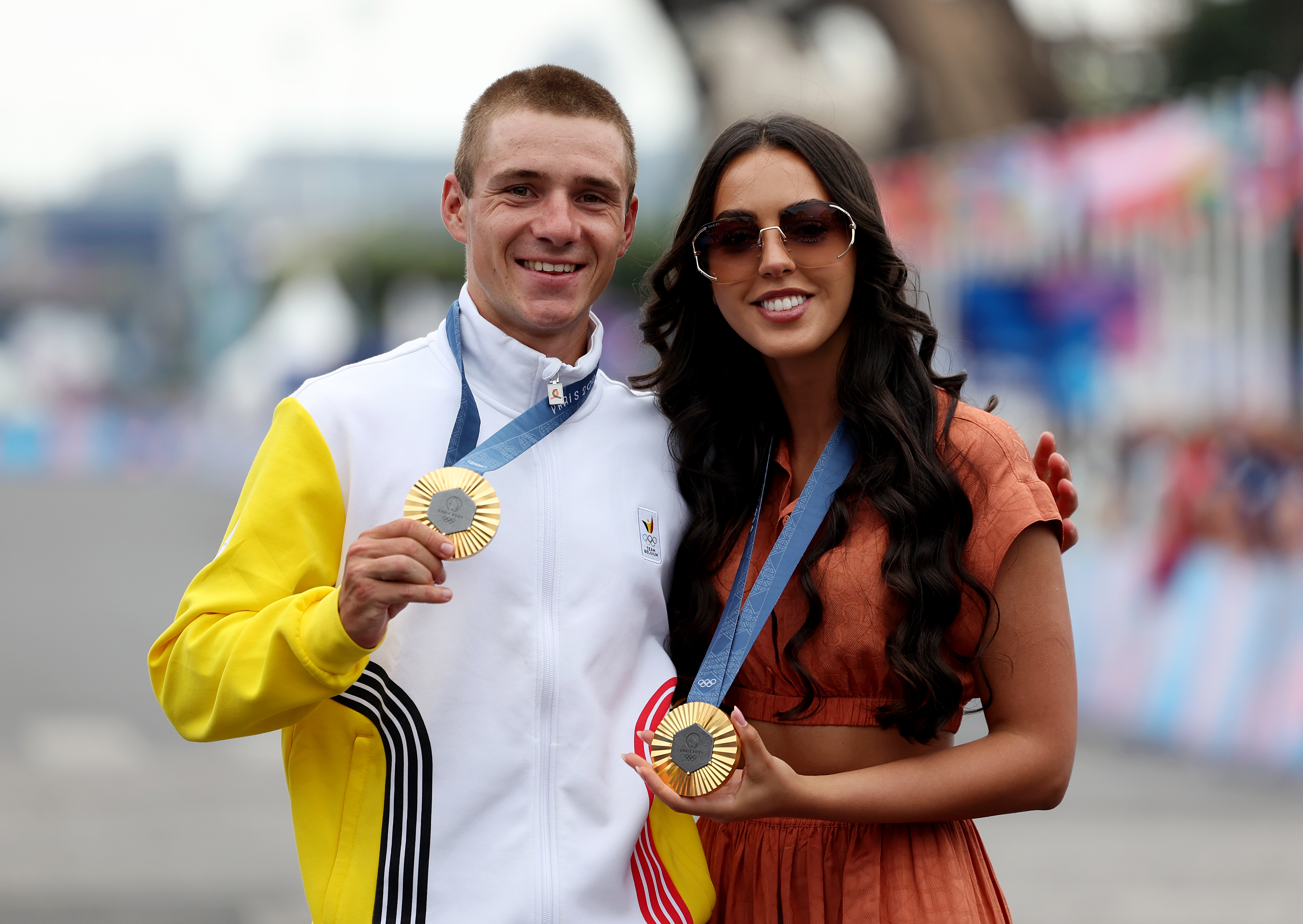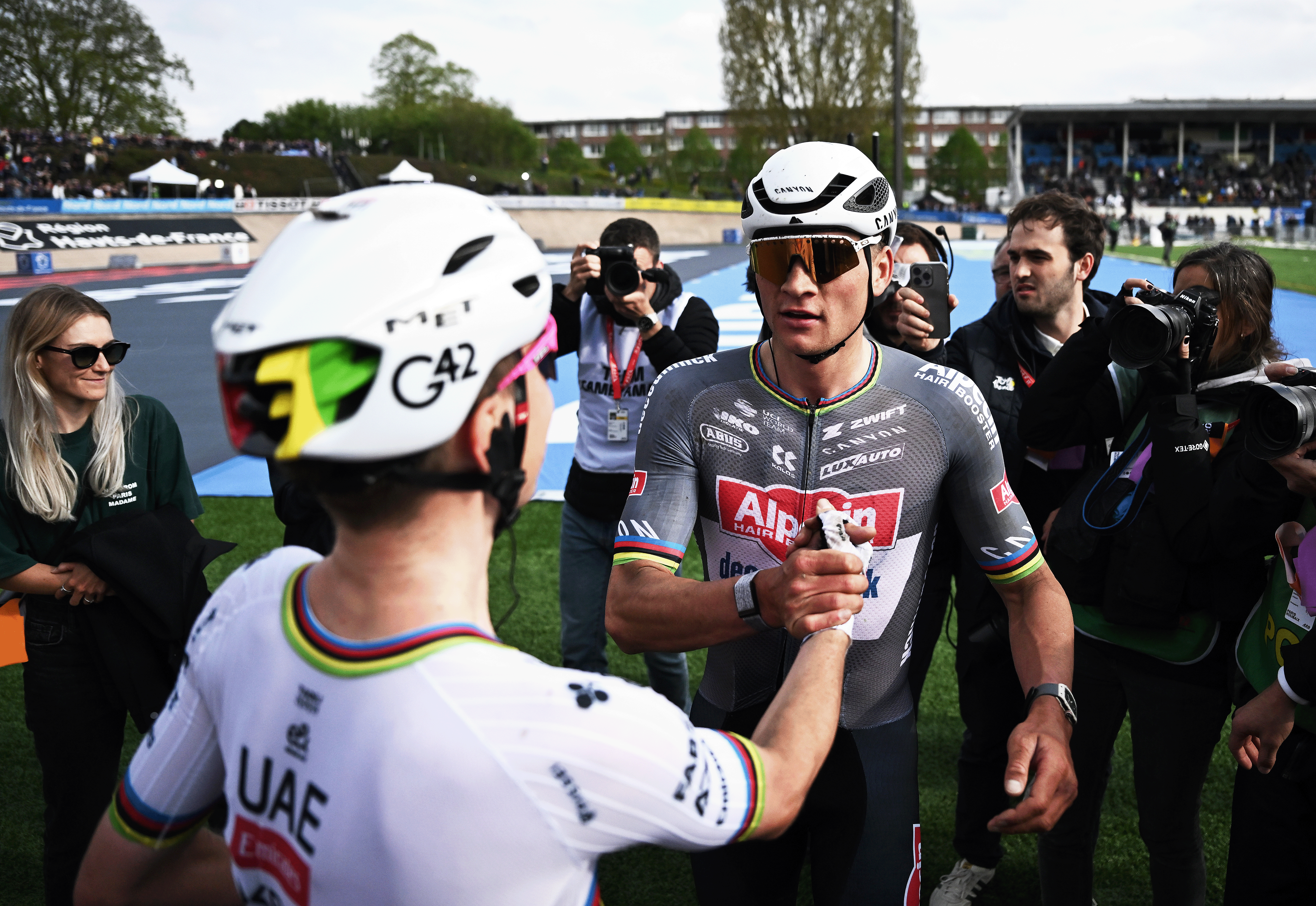History beckons for Roglic and Bernal in 2021 Vuelta a España - Race Preview
All you need to know about the contenders, route, and storylines at the 76th edition of the Spanish Grand Tour
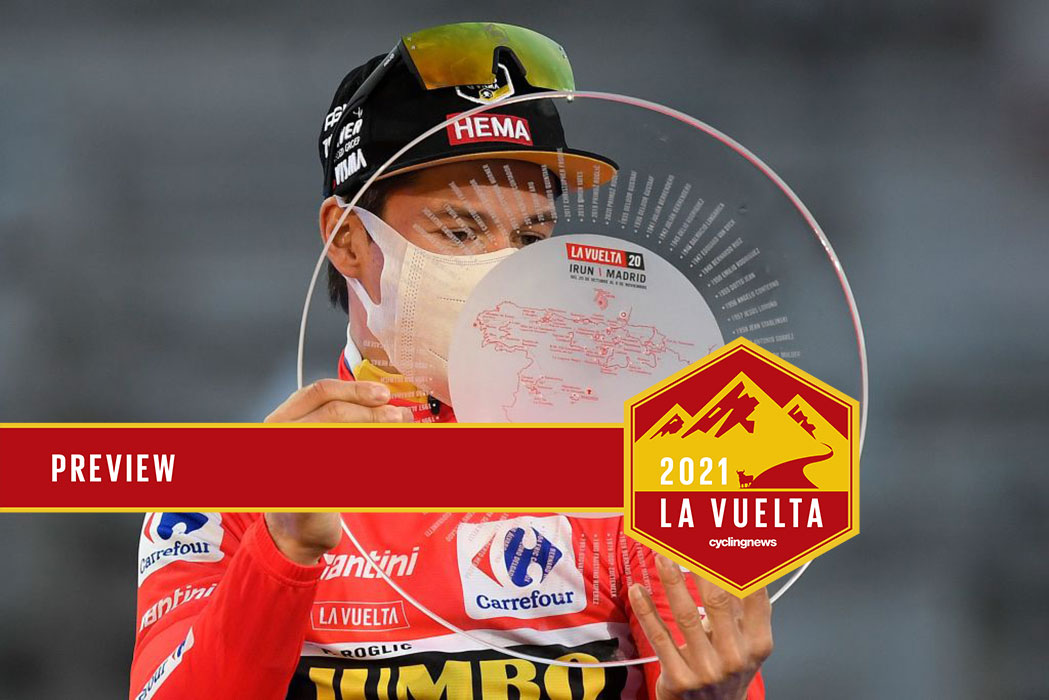
Does the following plot-line sound familiar? Following a dramatic defeat in a major Grand Tour, one of the world's top-ranked racers makes a stunning comeback to triumph in the Vuelta a España and regain momentum for the following year's Tour de France.
Such was the case of Primož Roglič (Jumbo-Visma) in the 2019 Vuelta after losing the Giro d'Italia to Richard Carapaz, and again in Spain's premier bike race in 2020 when he was ousted from the Tour de France lead at the last minute. Now in 2021, after his injury-induced abandon from the Tour this summer, all eyes will once again be on Roglič in the 2021 Vuelta to see if history can repeat itself.
In a sense, as the first rider in over a decade to claim two Vuelta wins on the trot, Roglič has only himself to blame for such heightened expectations that he can take a third. Combined with an ever-growing reputation as modern-day cycling comeback king, when Roglič rolls down the opening time trial start ramp in the shadow of Burgos cathedral late this Saturday evening, he knows that anything less than victory will widely be considered a failure.
It says something about the inherently unpredictable nature of the Vuelta, though, that a triple crown is something only three riders have managed to pull off in the race's 86 year history, most recently Alberto Contador in 2008, 2012, and 2014. El Pistolero was preceded by the all-time Vuelta record holder, four-time champion Roberto Heras, whose first three wins came in 2000, 2003 and 2004.
Roglič perhaps has the most in common with the only foreign racer to take three Vuelta overall victories, Tony Rominger. A hugely gifted time triallist, the Swiss star won the Vuelta in 1992, 1993 and 1994. That was despite running up against a series of obstacles in the Tour de France collectively defined as the triple 'Is': bouts of illness, injuries and, above all, Miguel Indurain.
As for his possible successor, Roglič's gold medal in the Olympic Games time trial will surely have given the Slovenian an equivalent morale boost to his post-Tour victory in Liège-Bastogne-Liège last autumn, or greater. However, just as the opposition at the 2020 Vuelta was much tougher than when Roglič first won the race in 2019, this time around there is an even greater plethora of talent compared to nine months ago.
The contenders
The headline addition to the favourites list is, of course, Egan Bernal (Ineos Grenadiers). And Bernal also has a date with history. Already the first Colombian to win the Tour de France, and the second to take the Giro d'Italia, Bernal's debut in the Vuelta comes with the goal of being the first rider from his country to win all three Grand Tours.
Capturing the Giro d'Italia this May has definitively dispelled the myth that Bernal's 2019 Tour victory was the work of a one-hit-wonder. Finishing slightly off the pace in the summit finishes of the key warm-up race, the Vuelta a Burgos last week, could indicate he is struggling to find a second peak of form this year. But more likely, given the biggest challenges of the Vuelta this year are in its final half, he's timing his peak of form for early September, not mid-August.
For some, the attractions of a Bernal versus Roglič duel in the Vuelta a España could only be eclipsed by a three-way match with Tadej Pogačar (UAE Emirates). The absence of the Tour winner, particularly after it briefly seemed likely in July that he would take part in the Vuelta, does represent a major hole in the race's hypothetical line-up. Yet that ignores the fact that this Vuelta will be the first time in a Grand Tour that Roglič and Bernal will clash without underlying issues, like Bernal's back injury in the 2020 Tour ending the fight before it had even started. Even if we ignored the rest of the opposition, that is surely a strong enough headline double-act.
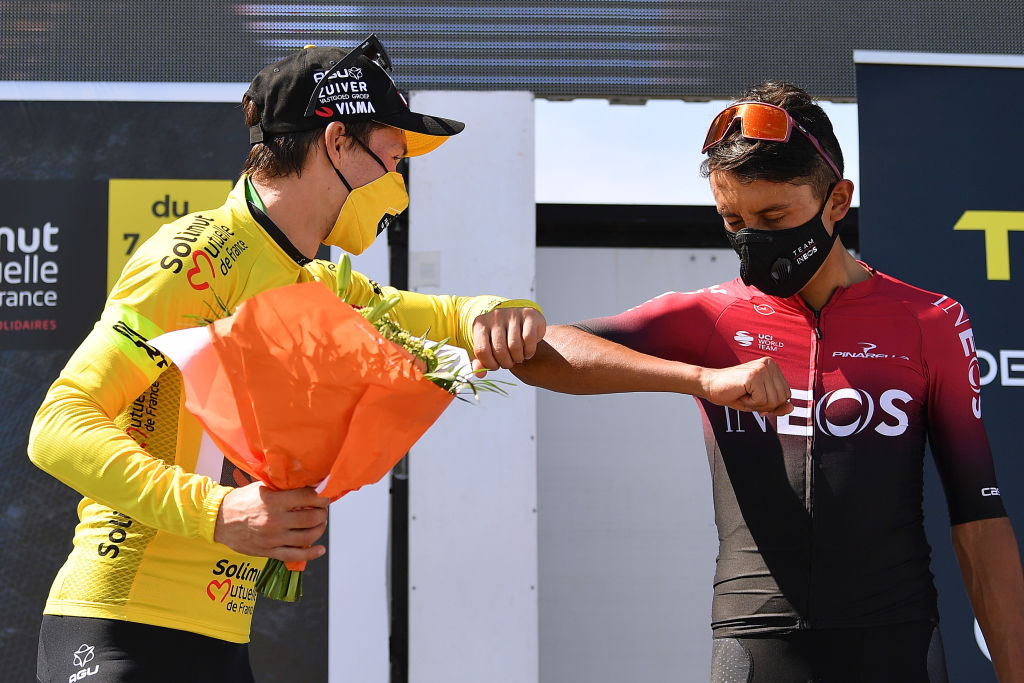
It's indicative of how much is at stake this summer that both of their teams have brought notably strong support acts with them. Jumbo-Visma will have climbing powerhouses Sepp Kuss and Steven Kruijswijk to back Roglič and a second line of mountain support in Sam Oomen and Robert Gesink.
Although the Ineos Grenadiers line-up has yet to be definitively confirmed, Bernal will most probably be reinforced on the Vuelta's nine summit finishers by riders of the calibre of Adam Yates, who already performed a similar role for his brother Simon in the 2018 Vuelta when they were at Mitchelton-Scott. Dani Martinez will likely have similar duties to his vital support role in the Giro this May, too, while Russian Pavel Sivakov will be aiming to put memories of his crash and abandon in the Giro's first week behind him for good. Sivakov's strong form in the Vuelta a Burgos certainly suggests he has the form to do that.
The strength of the Ineos Grenadiers line-up doesn't just stop there, though. In what feels like something of a re-run of Remco Evenepoel's first Grand Tour start this May in the Giro, the young British rider Tom Pidcock's debut in three-week racing will likely generate its fair share of column inches, no matter how successful it actually proves to be. In terms of the overall, the return of Richard Carapaz to a race in which he was only narrowly beaten last year represents another major option for Ineos Grenadiers to take on Roglič. And given Carapaz saw off Roglič in the 2019 Giro, the 2021 Vuelta could be another chapter in their Grand Tour battles, as well.
Carapaz is not the only challenger from last year to be present. Hugh Carthy's victory in the final stage of the Vuelta a Burgos was both a timely reminder of the EF Education-Nippo rider's third place in the 2020 Vuelta a España and confirmation he is in great shape for this year's race. Spanish hopes will be pinned on Movistar's Enric Mas, the best young rider in the Vuelta last year, and veteran Alejandro Valverde, with Mikel Landa (Bahrain Victorious) back in the list of contenders after his solidly crafted overall success in the Vuelta a Burgos.
There will be interest, too, in seeing how Aleksandr Vlasov (Astana-PremierTech) and Romain Bardet (Team DSM), two other top 2021 Giro finishers, fare in Spain. French dark horse Guillaume Martin (Cofidis) could be looking for either a GC result or to repeat his King of the Mountains title from last year's Vuelta, or perhaps both. Yet more outsiders include two former Vuelta podium finishers, Esteban Chaves (BikeExchange) and Rafal Majka (UAE Team Emirates), with 2015 winner Fabio Aru (Qhubeka-NextHash) also unexpectedly reviving hopes of a comeback thanks to his second place overall in Burgos.
The route
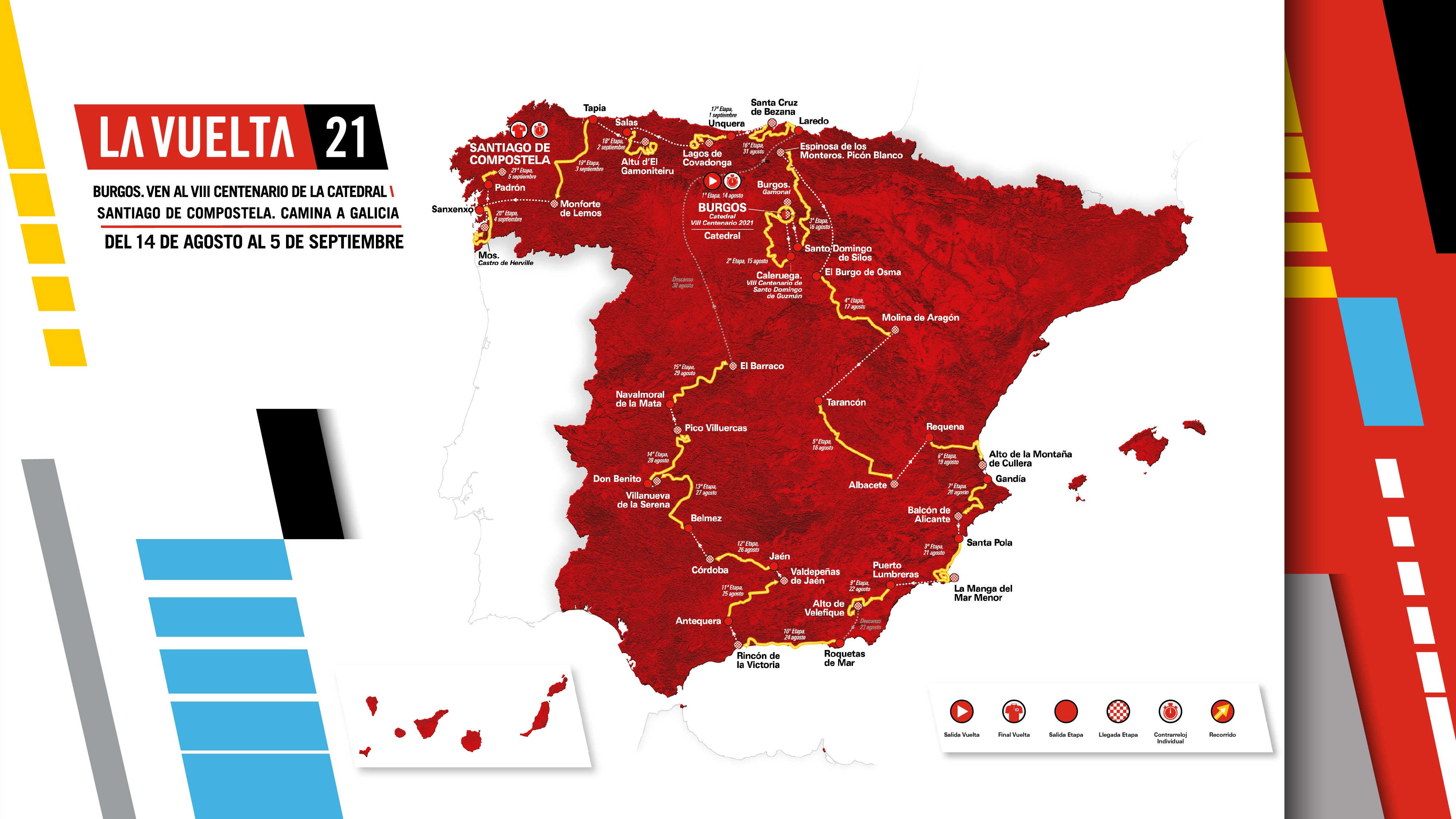
Whoever emerges as the definitive wearer of the Vuelta's red leader's jersey on September 5 will have been able to handle a very different route to the Vuelta's usual format. Not only does the race avoid its traditional finish in Madrid for the first time since 2014, it also ends with a medium-length time trial for the first time since 2002.
By the time his then Kelme teammate Aitor 'Terminator' Gonzalez used the 41-kilometre chrono into Madrid to oust climber Roberto Heras from the lead on the very last day, Alejandro Valverde - the only rider present in the 2021 race who took part in that year's Vuelta - had by then abandoned. However, when the organisers and Vuelta route co-designer Fernando Escartin placed a hilly 33-kilometre TT into Santiago de Compostela on the 2021 route's final day, they clearly had the 2002 precedent for a last-minute upheaval on GC in mind, too.
Just like the La Planche des Belles Filles TT in the 2020 Tour, the Vuelta's final time trial is too important to be ignored and it will remain the key axis for many of the contenders' strategies for the entire event. However, it's worth remembering that it will be directly preceded by what Vuelta director Javier Guillén told Cyclingnews was 'possibly the toughest third week in the race's history'.
Featuring two monster climbing stages through the Picos de Europa mountains, the first major challenge is the 22nd ascent of the Lagos de Covadonga on stage 17. For years considered Spain's most difficult single climb, Covadonga's familiar summit finish will be followed 24 hours later by the Vuelta's unprecedented ascent of another massive Asturian climb, the Gaimoniteiru. A final segment of 17 per cent and several cement sections could make for a severely testing summit finish, particularly if the usual rainy weather for this part of Spain has set in by then.
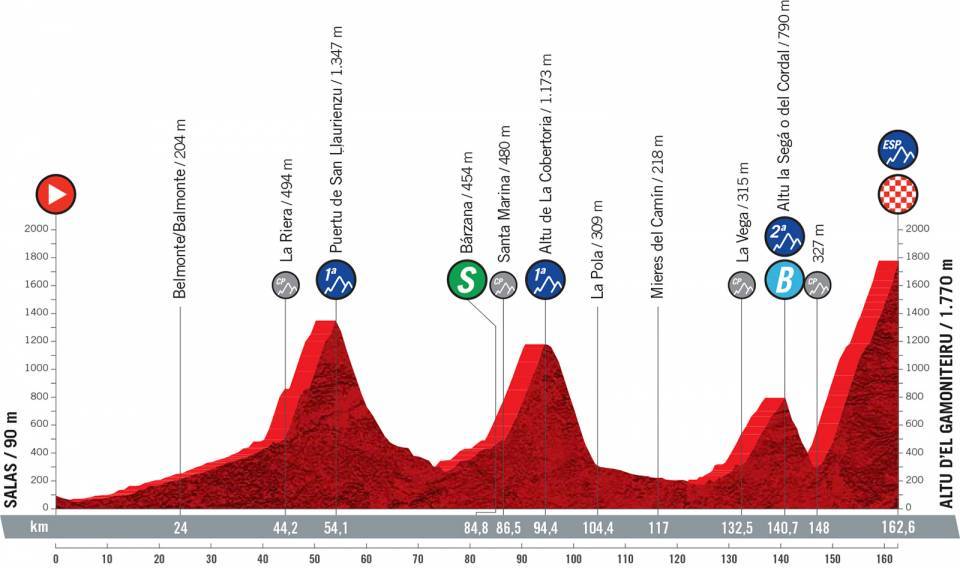
Still, the challenges of the third week don't end there. Saturday's final mass-start stage is a non-stop series of unclassified and minor climbs in southern Galicia's rabbit warren of narrow, twisting country roads. Coming 24 hours before the final TT, it could provide some perfect terrain for ambushes by non-time trial specialists.
If the final weekend is very different to the Vuelta's usual high mountains showdown, and features as familiar as the Angliru, the Basque Country and the Pyrenees are all missing from the route, the 2021 Vuelta nonetheless has many of the modern-day race's trademarks.
For one thing, there are no fewer than nine summit finishes. That's one more than last year, and they will begin to shape the GC battle as soon as stage 3's brutally difficult ascent to Picón Blanco. Already on display last week in the Vuelta a Burgos, when it comes to the weeding out of the overall contenders' weaker elements, Picón Blanco's narrow, relentlessly steep lower slopes and wind-blasted upper segment will be merciless.
From then on, fans of summit finishes will have every kind to choose from. There's the short, 'side of a house' variety on stage 11 at Valdepeñas de Jaén, and a slightly milder but similarly punchy uphill at Cullera on stage 6, where Pogačar won in the Vuelta a la Comunitat Valenciana last year. There's the classic high-sierra arid moonscape finish at Velefique, deep in sun-blasted south-eastern Andalucía on stage 8, and coming after 4,500 metres of climbing. There's a smooth, steady ascent to Balcón de Alicante on roads that will be instantly familiar to any rider who has been on a training camp in the Benidorm/Calpe region on stage 6. And there's a double ascent of another summit finish, too, Pico Villuercas on stage 13 in one of the most remote areas of western Spain.
It's worth mentioning that all of this will likely take place in conditions of extreme heat, with temperatures forecast to hit 40 degrees in Burgos next weekend and stay that high all through the first week as the race heads south to the regions of Valencia, Murcia – expect homages to Valverde on home soil in what could be his last Vuelta – and Andalucía.
The key to it all, as ever in the Vuelta, is that the mountain challenges are scattered throughout the race rather than coming in bigger clusters like in the Giro or Tour. Perhaps to compensate for the demands made by constant changes in terrain, not to mention some painfully long transfers between, there is only one stage over 200 kilometres in the entire race. The few sprinters planning to race the Vuelta, headlined by Caleb Ewan (Lotto-Soudal) and Arnaud Demare (Groupama-FDJ), will have six or seven stages as potential targets, double the entire total for 2020.
The summit finishes may catch the eye but one stage that finishes on a downhill could be one of the most attractive of the entire race. Stage 14 through the Sierras of Avila, west of Madrid, piles up a succession of first, second and third category climbs before a fast drop into the village of El Barraco. That's the hometown of Spanish cycling legend, the late Jose María Jiménez, and as homages go, stage 14 looks just like the kind of climbing festival 'El Chava' would have relished.
The final time trial in Santiago de Compostela, though, looks like the stage on which the entire 2021 Vuelta will pivot and where, the opposition permitting, Roglič or Bernal could enter cycling's history books.
Get The Leadout Newsletter
The latest race content, interviews, features, reviews and expert buying guides, direct to your inbox!
Alasdair Fotheringham has been reporting on cycling since 1991. He has covered every Tour de France since 1992 bar one, as well as numerous other bike races of all shapes and sizes, ranging from the Olympic Games in 2008 to the now sadly defunct Subida a Urkiola hill climb in Spain. As well as working for Cyclingnews, he has also written for The Independent, The Guardian, ProCycling, The Express and Reuters.
Latest on Cyclingnews
-
Melissa Hoskins' death was a 'tragic accident' says victim impact statement heard in emotional court hearing, Rohan Dennis' lawyer requests suspended sentence
Judge Ian Press to sentence Dennis on May 14, 2025 -
UCI, Alpecin-Deceuninck to pursue bidon thrower 'so that such behaviour is severely punished'
Mathieu van der Poel's team: 'misbehaviour of a few individuals can have far-reaching consequences' -
'Without you, I would probably have stopped my career' – Remco Evenepoel thanks wife Oumi in emotional post ahead of return from 'dark period'
Olympic champion primed for first race since October at Friday's Brabantse Pijl after 'the hardest battle of my life so far' -
What's next for Paris-Roubaix's protagonists? – Van der Poel ends Classics campaign as Pogačar heads to favoured terrain in the Ardennes
Dutchman and world champion not set to face off again until Tour de France in July after historic trio of one-day duels

